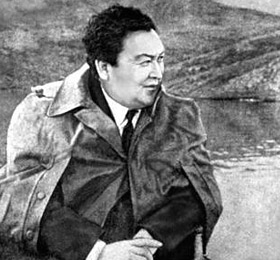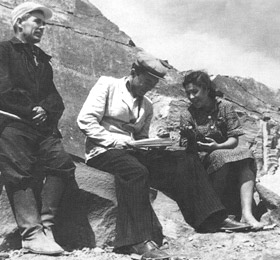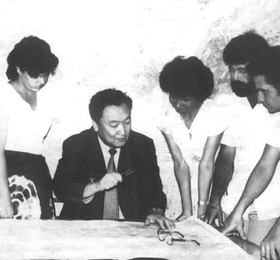Tamerlan Ibraemov
Specialization: electric power industry. Internship: Polytechnic University of Catalonia, Spain.
 A graduate of the Faculty of Physics and Technology of Al-Farabi Kazakh National University is from Khromtau. At the age of 20, he won the competition of the Shakhmardan Yessenov Foundation and last fall he went to study electrical discharges in a small university town of Terrassa in Spain. Let’s find out which of his dreams came true, what the internship taught him and what the young Kazakhstani is striving for now.
A graduate of the Faculty of Physics and Technology of Al-Farabi Kazakh National University is from Khromtau. At the age of 20, he won the competition of the Shakhmardan Yessenov Foundation and last fall he went to study electrical discharges in a small university town of Terrassa in Spain. Let’s find out which of his dreams came true, what the internship taught him and what the young Kazakhstani is striving for now.
How did you find out about the Research Internships of the Shakhmardan Yessenov Foundation? Why did you decide to apply and why did you win?
I was subscribed to the foundation’s Instagram, and one day I saw an ad. I applied almost on the last day. I didn’t know then what advantages this internship gives in my future career. Dad always said, “Try to get the best education.” And I was only thinking about experience and knowledge. So I won, because – it turns out – I listened to my dad. 🙂
What exactly did you do in the lab?
I worked at the High Voltage Test and Research Center – Amber. The laboratory belongs to the Polytechnic University of Catalonia. He was engaged in one of the many studies that contribute to the transition of vehicles (in particular, aviation) to the use of electricity. And since electrical discharges occur in the electrical system of the aircraft, which ultimately disables the engine and leads to a catastrophe, we worked on how to avoid them.
Who did you work with?
I did part of the work with a student-intern from France. And my supervisor was Jordi-Roger Riba Ruiz, Professor of the Department of Electrical Engineering and scientific director of the Amber Laboratory, who invited me for an internship.
What did you manage and what did you learn in 3 months of internship, Tamerlan?
Together with a team various electrical discharge detectors were tested and compared. We also experimentally compared aviation cables with different insulation, and found a material with the best characteristics that can be successfully used in electric airplanes. I learned a lot during this time: I gained new knowledge in the field of electronics and aero engineering and even practiced writing Python code. Based on the results of the experiments, we wrote an article together and recently published it in a highly cited scientific journal.
Are there any life hacks that you would like to share with others?
Sure. “You’ll never know until you try” – make it the slogan of your life! During my internship, I often had to design something for an experiment. But before I did anything, I’ve been thinking for a long time and consulting with everybody. One of the doctoral students taught me to always try my idea, even if initially it seems bad. And he explained that this was the only way I could improve as an engineer. It is thanks to my mistakes that I know that I have improved my professional skills now. Another important life hack is to learn at least the simplest of the language of the host country. Then you will be able to solve everyday problems much easier and pull up a new language for you. Well, try to find a place closer to the laboratory.
Were there any personal, non-scientific discoveries?
I worked in a multinational team of employees from five different countries. I studied, taking into account the difference of cultures, to work effectively in a team and to avoid conflicts. There was also a culture shock. I couldn’t get used to having lunch at 2 p.m., and not at noon. Because of this, I learned to eat fruit or yogurt usefully at 11.00. It takes little time and gives a lot of energy. In the future, I would also like to have sports in my life – Spaniards constantly ride bicycles, run or play football. Every Friday after work, the guys from the lab and I went to play football. And then we spent time at the bar, sat, talked over a beer. At this time, we tried not to talk about work. We joked about the professor and told each other about our countries.
Did the Covid-19 pandemic somehow affect the course of the internship?
Certainly. It is important for everyone who goes for an internship to pay attention to passing a PCR test. It is often not enough to have even a coronavirus vaccination accepted by the WHO. Imagine if you have a positive result right before departure, when you have already bought air tickets and booked accommodation. 99% of such cases are not covered by insurance. Try to isolate yourself as much as possible before departure at least for a week, try to buy tickets that can be returned, etc. Take the most basic medications with you, go to the doctor before you leave, if necessary.
What are your most vivid childhood memories?
For simple guys like me, football was above everything. We were all constantly arguing with each other: Real Madrid or Barcelona, which team is the best? Thanks to the internship, I fulfilled two of my childhood dreams. The first is to attend the most famous football match in the world “El Clasico”, a competition between the above-mentioned clubs. And since the match was held in Barcelona, it fulfilled another of my long-standing dreams – to walk barefoot along the seashore. I’m from a small mining town, and I’ve never been to the sea before.
What’s next, Tamerlan?
Having the experience and advantages of the internship behind me, I will try to enroll in a master’s/doctoral program at a top foreign university. The main task for the coming year is to prepare and pass the necessary exams, write an essay, etc.
Good luck, Tamerlan, may this dream come true as well!
14.02.22, Stories
Seen by: 620





